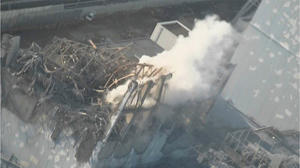Nuclear mattersJapan nuke accident halves nuclear power growth
The nuclear meltdown at the Fukushima Daiichi plant appears to have caused nations around the world to reconsider nuclear projects; following the accident, demand for future nuclear projects has been halved

The Fukushima disaster has impacted world's nuclear deployments // Source: ne.jp
The nuclear meltdown at the Fukushima Daiichi plant appears to have caused nations around the world to reconsider nuclear projects. Following the accident, demand for future nuclear projects has been halved.
Luic Oursel, the CEO of French nuclear giant Areva, which has helped build more than one quarter of all nuclear reactors in the world, said that the company’s original projections for new reactors scheduled to be built over the next two decades have been halved. Prior to the accident, Areva had expected the number of nuclear reactors to double by 2030, but Oursel still anticipates that there will be a 50 percent increase in nuclear power generation over the next twenty years.
“It is clear that the accident at Fukushima has had a strong impact on the nuclear industry,” Oursel said “But we consider that all of parameters which have driven this nuclear renaissance remain the same. The need for competitive and predictable power, the need to fight climate change and the need to for greater energy dependence continues to grow around the world.”
With the exception of Germany, most countries around the world have reaffirmed their commitment to maintain and build more nuclear power plants, despite the dangerous nuclear accident in Japan, Oursel said.
Oursel’s remarks come as he toured the Tennessee Valley Authority’s unfinished Bellefonte nuclear power plant. Construction on the plant originally began in 1974, but was suspended in 1985. The plant could begin generating power as soon as 2018, thanks to a $4.9 billion contract with Areva to complete the unfinished power plant.
“When complete, we are convinced that Bellefonte will be one of the most modern and safest nuclear facilities in America,” Oursel said. “It will meet or exceed all of the safety standards for natural disasters and will obviously incorporate all of the safety requirements stemming from Fukushima.”
